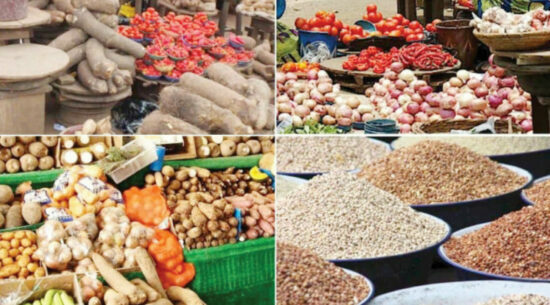Despite the recent appreciation in the exchange rates of Naira against the dollar at N1000, Nigerians continue to grapple with the burden of escalating food prices.
The Nigerian populace, already facing economic challenges, are now confronted with the harsh reality of diminishing purchasing power as essential food items become increasingly expensive.
In recent months, the appreciation of the naira was anticipated to provide some relief for Nigerians, potentially reducing the cost of imported goods, including food items.
However, this expectation has yet to materialise, leaving many Nigerians disillusioned and financially strained.
According to Apata market sellers in Ibadan, the persistent rise in food prices can be attributed to various factors, including supply chain disruptions, transportation costs, and market speculation.
Mrs. Olufunmilayo said, “A bag of beans that was N68,000 three weeks ago at Apata Market now sells for N80,000. Of all the foodstuffs I am selling, it’s only the price of rice that has gone down, from N88,000 to N70,000.”
She added that the ongoing insecurity in certain regions of the country has further exacerbated the situation, leading to disruptions in agricultural activities and distribution networks.
Also, Mr Abiodun complained about the increment in vegetable oil despite the naira appreciation.
He said, “A 25-litre container of Kings vegetable oil that was N46,000 last month is now N57,000, and yet we say the dollar is falling.
We don’t understand where we are going in this country. Again, only the price of Indomie noodles was reduced by 30%, as we sell it for N11,700 but now it’s N6,700.”
In the same vein, a garri seller also spoke of the increment in the price of garri, from N800 per congo last month to N1,400.
She said, “Since I was a child, garri has never been sold for more than N300 per congo, let alone N1,400. This is so devastating, as a common man cannot afford garri anymore. Can we say the dollar caused this too?”
Here are the reports of some food prices from January to April 2024
Lower-income families are having a hard time buying enough food, which makes people worry about not having enough to eat and not getting the right nutrients.
In Nigeria, as food prices keep increasing, people are getting more worried about how it affects those who don’t have much money.
The government needs to act quickly and do things to alleviate this hardship for the masses.
| FOODSTUFF | JANUARY(Price) | FEBRUARY(Price) | MARCH(Price) | APRIL(Price) |
| Rice | 57,000 | 84,000 | 76,000 | 70,000 |
| Beans | 53,000 | 58,000 | 65,000 | 80,000 |
| Vegetable Oil | 43,000 | 46,000 | 48,000 | 55,000 |
| Noodles(indomitable) | 5,700 | 9,300 | 11,600 | 7,600 |
| Garri (per congo) | 500 | 700 | 900 | 1200 |
| pepper | 30,000 | 80,000 | 70,000 | 65,000 |
| Palm Oil | 18,000 | 23,000 | 25,000 | 27,000 |
| Semo | 5,200 | 5,700 | 6,150 | 6,700 |
